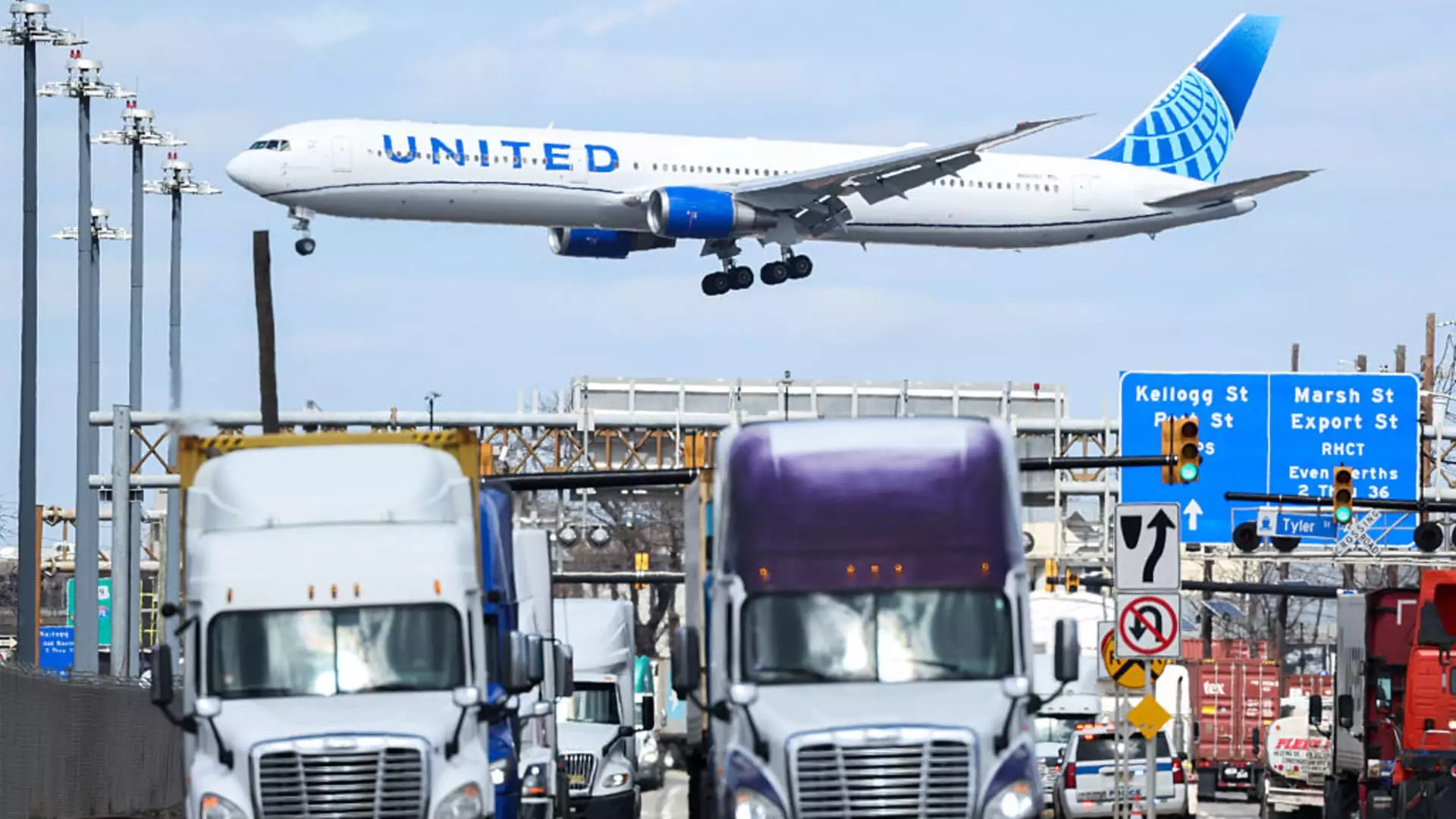In an unprecedented move, United Airlines is navigating the unpredictable waters of the U.S. economy with a dual forecast strategy, reflecting a keen awareness of potential risks and rewards. The carrier, recently reporting a $387 million profit for the first quarter—a significant turnaround from its previous $124 million loss—remains optimistic about its future while simultaneously bracing itself for a possible recession. United Airlines has made it clear that it expects to maintain profitability, regardless of economic shifts. This stance reflects a spirit of resilience that should be lauded, though it may also raise eyebrows about the sustainability of such bold forecasting in uncertain times.
Examining the Numbers: Flight Plans and Financials
United’s outlook is ambitious, aiming for adjusted earnings per share of $11.50 to $13.50 for the full year. However, they are prepared to scale back their expectations to $7 to $9 per share should economic conditions sour. This dual approach raises questions about the reliability of forecasts amid volatility. The aviation sector is highly sensitive to fluctuations in demand, and United’s decision to cut domestic flight capacity by 4% speaks volumes about their anticipations regarding travel behavior this summer. Despite this, international bookings are thriving, with premium travel flourishing. This trend should serve as a beacon of hope in a market feeling the strain of consumer hesitance sparked by broader economic issues.
The Reality of Domestic Travel Impacts
United’s acknowledgment of poor domestic travel demand reflects a critical aspect of modern air travel—balancing the volatile passenger market with operational efficiency. The airline’s unit revenue from domestic flights dropped by 3.9%, in stark contrast to a substantial 5% increase in international routes. This discrepancy suggests a shift in consumer priorities, with travelers increasingly gravitating toward experiences associated with higher price points. United’s response to cap domestic capacity while investing in international offerings reflects a strategic gambit, albeit one that illuminates the reliance on wealthy travelers to buffer against cyclical downturns.
Competitive Landscape and Strategic Goals
In the overarching context of the airline industry, Delta Air Lines has also begun to slow its growth plans due to similar market uncertainties. With United’s CEO Scott Kirby committing to a multi-year plan aimed at reinforcing their financial stamina, one has to consider whether this level of strategic confidence is truly warranted. Will this optimistic approach be enough to sustain United through challenging times? The carrying narrative is that airlines like United and Delta will benefit from a clientele willing to indulge in premium fare options—yet dependence on affluent consumers can be a double-edged sword.
The Broader Economic Picture: Influences Beyond Just Airlines
The broader ramifications of potential recessions extend beyond air travel. With President Trump’s trade policies and mass layoffs impacting consumer sentiment, it’s imperative to question the sustainability of such forecasts. The airline industry is traditionally one of the first sectors to feel the strain of economic downturns. Thus, despite United Airlines’ promising figures, one must remain skeptical about the carrying capacity of airlines amidst larger economic turbulence.
A Call for Prudence Amid Optimism
United Airlines’ decision to maintain both growth ambitions and realistic precautions invites an introspective discussion about the fine line between confidence and recklessness in business forecasting. As they ride the wave of current profitable indicators, the tempered outlook for a recession serves as a reminder to stakeholders to engage in strategic planning rather than only basking in optimistic numbers. In essence, while it’s commendable for United Airlines to adopt a proactive stance in a climate of unpredictability, the question remains—will they truly be able to navigate these treacherous skies when the winds of economic change blow colder?
United Airlines reflects the dynamics of modern business resilience: a commitment to innovation amidst existing consumer dynamics, coupled with a measured response to inevitable economic fluctuations. In an age riddled with uncertainty, the actions of such corporations will illuminate paths for others aiming to weather the storm.

